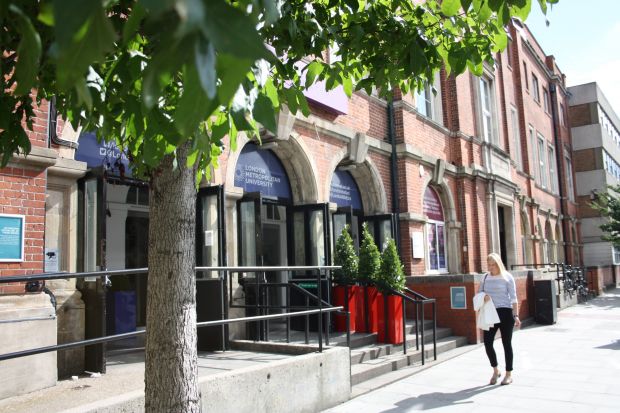When I became vice-chancellor of London Metropolitan University in 2014, I inherited a position at an institution that was facing dramatically falling revenue, suffering from significant reputational damage resulting from two earlier crises, in 2009 and 2012, and the impending prospect of staff cuts. However, it was the crucial role that the university had historically played in supporting students from many of the poorest social backgrounds that drove me to accept the challenge to serve as v-c and chief executive officer.
Now, as I leave the university, I have reflected on the measures that I took to ensure that the university is in a much better place now than it was four years ago. I have detailed these measures in a paper for the Higher Education Policy Institute that was published today. Within the paper, I highlight the four steps that I took to achieve financial sustainability and better student outcomes at London Met. These four steps are diagnosis, interpretation, intervention and building an adaptive culture, and are suggested as a programme of recovery.
Diagnosis
When I first joined the university, I became aware that the way things were being run produced the best outcomes for staff, not students. At my very first meeting with union representatives, I found that payroll was 25 per cent higher than average, with members delivering about 25 per cent less than average on student outcomes. How to address the fact that rational students would not make the decision to study at London Met if their chances of getting a good degree and a good job afterwards were 25 per cent higher elsewhere became a core focus of our dialogue.
Interpretation
I found that staff expectations of work, of themselves and of students were low. The dominant narrative that I encountered from staff was that they had had poor leadership and were victims of events outside their control and hostile external forces. There were many dedicated and professional members, but there was resistance to change. The victim narrative had created an environment in which no one was willing to be accountable for mistakes of the past and few were willing to be responsible for creating a better future.
Intervention
We needed to create long-term changes by fearlessly identifying the areas in which the university was underperforming and fixing them. We found that we had to educate staff about the long-term consequences of current behaviours while giving the university community a high level of agency in developing and implementing solutions. By consulting with students and staff, we found two priorities: improving outcomes for students and achieving financial sustainability.
We achieved the first by listening to students, consulting with the president of the students’ union and acting on student module feedback. The second, sadly, came with a number of redundancies for jobs that no longer contributed to the university’s strategic priorities. Through this, we reduced our costs by £17 million a year and became far more financially sustainable.
Building an adaptive culture
This is an ongoing task that lays a foundation for continued improvement in student outcomes and growth of the university itself. I have continued to meet regularly with staff and students, and have focused on improving dropout rates, which had been reducing but too slowly. An adaptive culture means, among other things, that leadership is distributed throughout the management group, and I am pleased to say that today there is a good working relationship with union representatives.
Within the Hepi paper, I also note the two new businesses that London Met has launched: London Met Apprenticeships and London Met Online. LMO will offer a bite-sized skill certification alongside traditional modules that directly links to students’ LinkedIn profile so that employers can see the credits and 21st-century job skills that students accumulate.
My proudest achievement is moving the odds in favour of better outcomes for London Met students, especially important in light of the university’s social mobility mission. Two-thirds of London Met’s students are from black, Asian and minority ethnic backgrounds, and nearly seven in 10 come from homes in the top 20 per cent of the government’s index of multiple deprivation.
London Metropolitan University is now ranked second in the country for social inclusion, with 96.5 per cent of students coming from state schools, according to a recent ranking by The Times. By focusing relentlessly on improving student outcomes, the university has seen students from the most deprived backgrounds leave university with degrees from an institution with an employment measure for UK-based students ahead of 87 other institutions, with 96.7 per cent of our graduates being in work or further study within six months.
After years of working hard and implementing the steps above, it brings me great satisfaction to be leaving the university on track for a silver rating in the teaching excellence framework and on financially stable footing. The turnaround since 2014 at London Metropolitan University is an illustrative example of what is possible when a university gets a grip, taking both ownership of its past and responsibility for its future.
John Raftery is the former vice-chancellor of London Metropolitan University.
The full policy note “A university turnaround: adaptive leadership at London Metropolitan University, 2014 to 2018” is available on the Hepi website.
Register to continue
Why register?
- Registration is free and only takes a moment
- Once registered, you can read 3 articles a month
- Sign up for our newsletter
Subscribe
Or subscribe for unlimited access to:
- Unlimited access to news, views, insights & reviews
- Digital editions
- Digital access to THE’s university and college rankings analysis
Already registered or a current subscriber? Login



